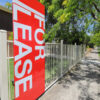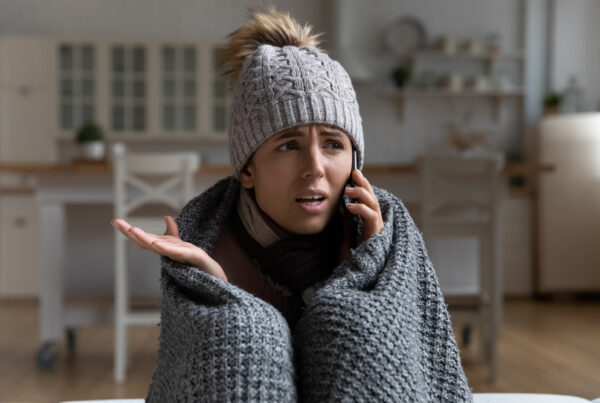With technological advances happening daily, it’s hard to know which are worth getting on board with and which to avoid. When it comes to home security and operations, the use of electronic devices and apps have proven to be highly successful and advantageous in ensuring the safety and efficiency of one’s home. But in the fight of traditional vs smart, which locking device comes out on top?
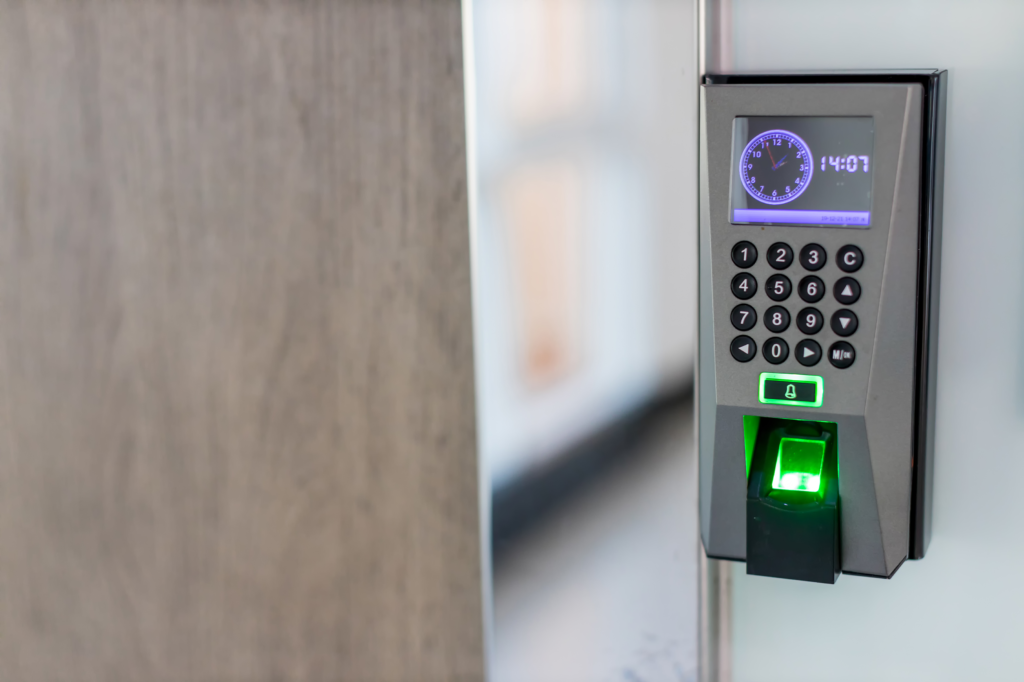
Locks have been a staple and necessary addition of security in every home for centuries. Often taken for granted, locks hold our most precious processions safe and keep our loved ones sleeping soundly at night.
Although it seems as if it is hard to further develop such a tried-and-true product, locks are advancing into the technological era like the rest of the world.
Many homeowners and property managers are opting to install smart locks over that of traditional versions. However, for every smart lock enthusiast, there’s a smart lock sceptic.
Many people believe that smart locks are more easily hackable and not safe enough for their families. Every home is designed with different safety protocols in mind, not to mention whether one’s house is a standalone property or a part of a larger estate or building. Therefore, not every home may benefit from switching over from traditional locks to smart ones. To know which is the right option for one’s property, it’s important to look at the vital differences between the two.
What are traditional locks?
The term ‘traditional locks’ is a relatively new addition to a homeowner or property manager’s vocabulary. Before the invention of smart locks, there were simply ‘locks’. Traditional locks refer to any lock that is operated through manual engagement; this can be through the turn of a physical key, twisting of fingers or a push of a button.
Known to provide maximum security, the deadbolt is the most used residential lock for any exterior entry. Depending on the need of the owner or property manager, there are various grades of security to consider with deadbolts, as well as options for installing single- or double-cylinder bolts that are neatly fitted into the door and adjoining wall, making it exceptionally hard to kick down.
However, there are two evident downsides to a traditional lock. The first being, if one were to lose or forget the adjoining key to any lock, it’s almost impossible to break in without the help of a professional locksmith. And secondly, in the case of such emergencies as above, many people leave spare keys in hidden areas around the outside of the home, effectively enabling would-be thieves or predators to find the key and break in with ease.
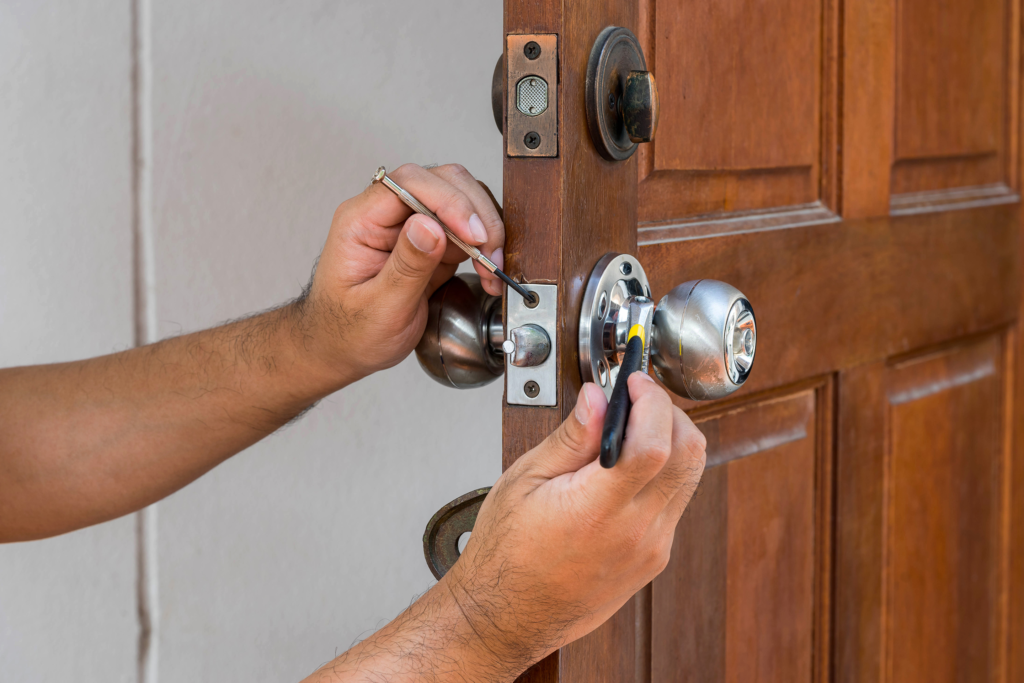
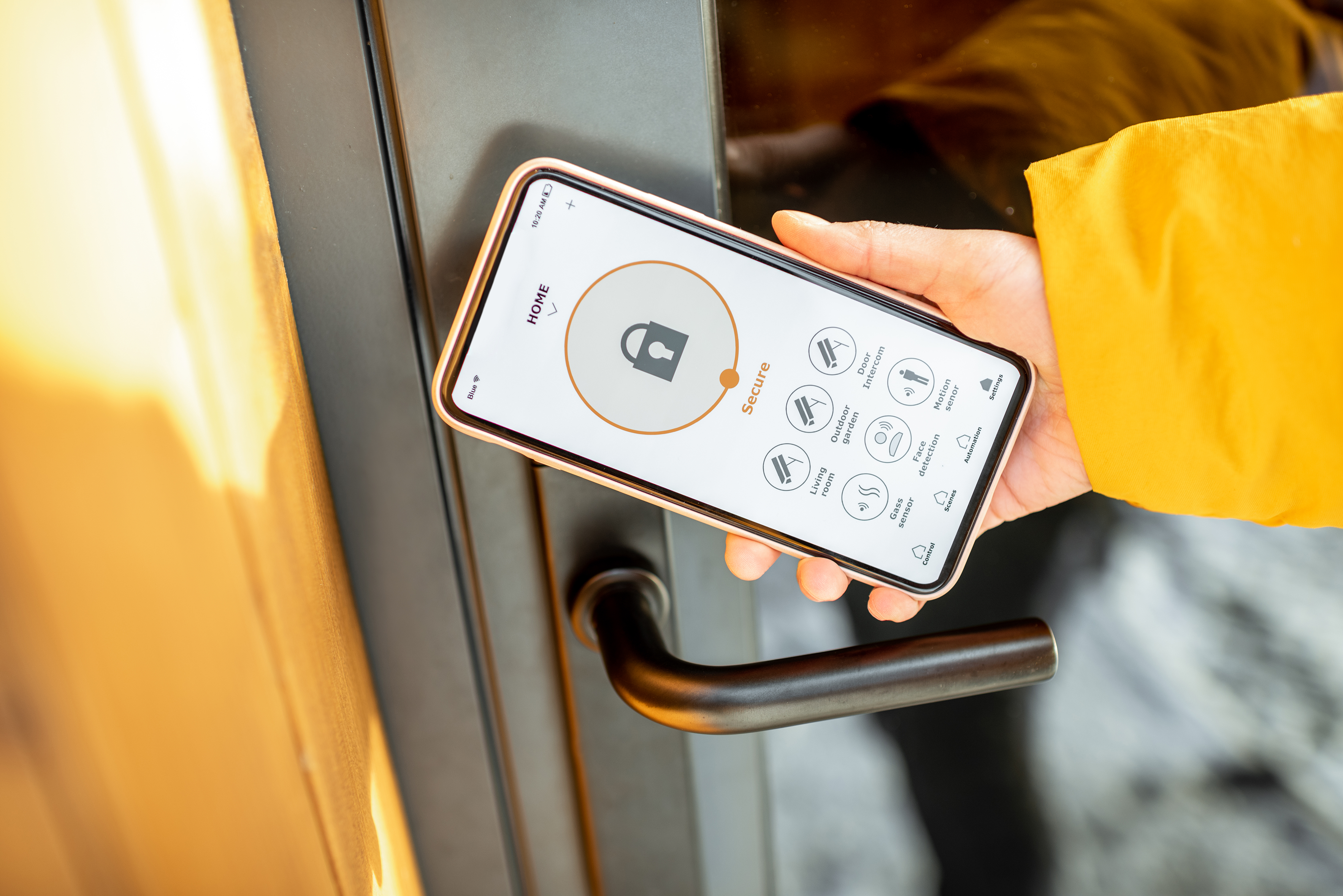
What are smart locks?
The term ‘smart lock’ was coined due to the ability of the lock to be engaged electronically such as through a remote, smart phone or by voice command.
Smart locks are essentially an automated version of traditional ones. They can be installed to use the same locking mechanism of a traditional one, however the key in this instance is cryptographic. A cryptographic key can be anything from a physical fob, an app, pinning in a code or password, or facial and voice recognition. Smart locks can also use Bluetooth activation, which is automated through the location services app on a smart phone, unlocking automatically when the owner is within a specified distance from the house, and again locking when the owner is outside of that range.
Being able to control a lock through electronic means comes with many advantages; the first and foremost is peace of mind. With smart locks, homeowners and property managers are able check remotely whether any door is in fact locked in case of emergencies or bouts of forgetfulness. Smart locks can also send notifications to any connected phones with pictures and videos of any oncoming visitors. Whoever has permission to unlock the door can, allowing owners to let visitors or family members inside remotely. Owners can also alert authorities if concerning characters are loitering around or attempting to get in, with photographic proof.
In many ways, smart locks are the same as traditional, just with a few extra features. But does that make it better? Not necessarily.
With enough tampering and knowledge of how locks work, just about any lock can be picked. However, with the case of smart locks, there is an additional concern of cyber safety. Cyber-attacks are unfortunately relatively common with smart locks and can be as simple as a hacker gaining access to either the app on one’s phone or via an associated WIFI account.
Although, there are measures homeowners or property managers can take to ensure it is more difficult to hack into the system. This can either require extra expenses and investments in high-security firewalls, or simply remembering to change network passwords and codes regularly.
Smart locks may also fall victim to any unforeseen power outages due to electrical maintenance or severe weather. However, like any app or piece of technology, there are possibilities – if not certainties – for further developments and security upgrades in the future.
Which is better?
At the end of the day, choosing which lock is best comes down to the preference of the buyer. Traditional locks have hundreds of years of reliability on their side, with most people already being very familiar with its workings. However, as more and more homes and buildings are turning into ‘smart homes’, with appliances and systems all being linked via apps, it makes sense to add home security into the mix. Additionally, for those who are often travelling or working late hours, the ability to access the security of one’s home can provide priceless comfort and ease of mind knowing that the status of one’s home’s security is easily accessible from anywhere in the world.
For property managers, having an app to control various doors instead of carrying around multiple keys means the functionality of every day management is easier, particularly for cleaning, repairs and in the case of emergencies.




